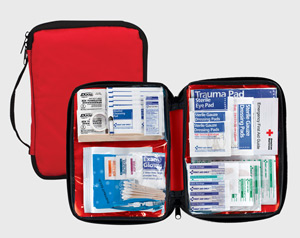Prepare NOW before the unexpected happens
 WHAM!
WHAM!
You never thought it would happen to you, but now it has… you’ve just been in an accident. It happened in the blink of an eye, and now you’re confused, angry, scared, maybe even injured. But even in this situation, one of the worst imaginable for decision making, you’ll be asked to make decisions that could change the course of the outcome. What do you do?
 We know Tom Dwyer clients are flawless drivers, but you have to share the road with herds of others and one of them might eventually smack into you. Going over the basic procedures for an accident, and taking care of a few small details, can help you get the best chance for recovery of your health and money. Make sure you print out the “What To Do In An Accident” flyer and put it in your glove box… you never know when you’ll need it!
We know Tom Dwyer clients are flawless drivers, but you have to share the road with herds of others and one of them might eventually smack into you. Going over the basic procedures for an accident, and taking care of a few small details, can help you get the best chance for recovery of your health and money. Make sure you print out the “What To Do In An Accident” flyer and put it in your glove box… you never know when you’ll need it!
We went to Cars.com, State Farm, GEICO, FindLaw.com, and AllState to gather together all their advice for this article. We assume throughout all this that drivers and passengers are not facing time-critical, life-threatening injuries. In that case the only priority is the preservation of life and limb of yourself, your passengers, and other people in the accident. If you are lucky enough to be uninjured, then this advice will be critical …
Get Safe. Worry about people first.
- Take a deep breath and try to stay calm.
You’ll be jangled and disoriented, but good decisions in the next few minutes can save your health and money. Relax as much as possible and try to think as clearly as you can.
- If there are obvious injuries, call 911.

A First Aid Kit Is Basic Preparation For An Accident! One of our client’s daughters is selling First Aid Kits to help raise money for a class trip to Costa Rica in June. These kits have all the basics you’d need for minor injuries, and would be a wise addition no matter what vehicle you drive. Kits are $25, and half of the proceeds go towards the trip. If you are interested in buying one (or more) of these kits, please contact Natalie at Tam@deainc.com.
Try not to move injured people at all, but do move them if there is some impending danger (like fire) that could cause greater injuries. Give appropriate First Aid until qualified medical help arrives.
- If there are no obvious injuries, ASK if everyone is okay.
Don’t rely on people to tell you they’re injured; they may not know themselves. Ask instead. If anyone seems groggy or unsure of their response, call 911. Many injuries can’t be seen, and the shock of an accident can delay symptoms. Better safe than sorry.
- Move the cars to a safe place, out of traffic, as quickly as possible.
Be careful not to leave the scene of the accident. If you can’t move your car safely or without causing further damage, don’t try. Your insurance company or the police will get it moved for you.
- Turn on your vehicle’s hazard lights and put out cones, warning triangles or flares for safety.
Call the police and your insurance company.
- Once everyone is as safe as possible and any needed medical help is on the way, then contact the police. Even if it seems like the damage is minor, calling the police is crucial to get a report on record. They’ll let you know if an officer needs to be dispatched. Often the police won’t come for minor accidents, but you should call to be sure.
- Never leave an accident scene until it’s appropriate to do so. If you leave, particularly when someone has been injured or killed, you could face serious criminal penalties as a hit-and-run driver. If possible, don’t leave the accident scene before the police and other drivers do.
- Notify your insurance agent while you’re at the scene. That way, they can tell you exactly what they’ll need to process the claim which can save you from going back and forth between the police and your insurance agency in the days following the accident.
Exchange information, but be careful what you say.
After an accident, you should speak to the other driver(s) only to exchange information and make sure they’re OK. Remember, they’ve just been through the same thing you have and could be angry, scared, confused, or even injured. Try to be clear, polite, and cooperative.
- Make immediate notes about the accident, including the events as you remember them. Time can play tricks with memory, so get everything you can down on paper while it’s still fresh in your mind.
- Don’t admit fault or say “I’m sorry”, even casually. For example, saying, “I’m so sorry I ran that red light! Is everyone okay?” can be interpreted as a legal admission of liability. The facts of exactly what happened and who’s at fault aren’t always clear at the scene of an accident, and the reality may not be what you think it is. Don’t say something that could put you on a hook you don’t deserve to be on.
- Don’t sign any document unless it’s for the police or your insurance agent.
- Don’t reveal your policy limits
- Don’t sign any statements or promise to pay for any damages without first consulting your lawyer.
- Neither the other driver nor the police need your Social Security number. DON’T GIVE THAT TO ANYONE!
- Ask every witness what they saw. Get their names, numbers, and addresses if possible. Ask locals if they’ve ever witnessed other accidents in the same place.
- Take photographs of the accident scene, all vehicles and vehicle damage, and the people involved as soon as possible after the accident. Photos can help your insurance company with their repair estimates as well as any legal action resulting from the accident.
- Here is the information you’ll want to get
- Name, phone number, address, and email address of all occupants and witnesses. If the name on an auto registration is different than the driver, note the relationship.
- Drivers’ license numbers and license plate numbers from all vehicles
- Names, policy numbers, and phone numbers of other insurance companies
- Make, color, and models of all vehicles involved
- Location of the accident
- If emergency services respond, get the police report number, phone number, name and badge number of responding officers.
- Ask the police for a copy of the accident report, though it may take a couple of days before it is filed. The officer’s opinion of the accident will be useful if the drivers have a dispute about fault. The police report will also have the officer’s information on it in case the officer is needed to testify.
- If the other driver won’t give you their info, you can still get it from the police. This article has tips on What To Do If Someone Won’t Share Insurance Information At The Scene Of An Accident.
After the accident…
After the accident there are still many opportunities for things to go wrong. Be careful, and make sure you stay conscious of these points…
Protect your interests
Don’t talk to anyone about the accident other than your lawyer, your insurance company, your doctors, or the police. Don’t talk to a representative of another insurance company without the knowledge of your attorney or insurer. If called by the other insurance company, politely ask them to call your attorney or insurer to arrange an interview. Also, tell your lawyer or insurer about the call.
Insurance
If you didn’t call directly from the accident scene, then call your insurance company immediately to start processing your claim. Their claims line is probably staffed 24/7, but if not you will likely be contacted by a claims representative within 24 hours. Cooperate fully and tell them the truth about the accident and your injuries. Explain the facts clearly. If the insurance company finds out that you’ve lied to them about anything, you can get into serious trouble including possible denial of coverage.
Obtain your insurance company’s damage valuation. Get two independent repair estimates or replacement quotes. If you can’t agree on your car’s value, consider mediation or consult an attorney.
Be careful of early settlements from insurance companies. Make sure all your physical injuries have been documented or treated. Some injuries don’t show up for days, weeks, or even months after the event. Don’t settle a claim until you know you’ll be compensated for all your injuries and expenses. It’s wise to consult your attorney before signing any settlement documents.
If you are found to be at fault in the accident, your premiums are likely to increase for at least some period of time. The amount of the increases varies from insurer to insurer. Some insurers won’t raise your premiums if you had an accident, but in most cases you will have to have been a long-standing customer of the insurance company for many years and never had an accident.
Legal
If anyone was injured in the accident, it’s best to consult an experienced attorney. An attorney can help you maximize your recovery if you’re injured or better defend yourself if you’re at fault. Many accident attorneys work on a contingency basis, meaning your lawyer only gets paid if you’re receive a settlement. Most states have a lawyer referral service through their State Bar; Oregon’s referral service is here.
Medical
Keep a record of any doctors, physical therapists, chiropractors, or other medical professionals that you receive treatment from, and each medical provider that referred you to other caregivers. Keep a detailed account of the treatments or medications you receive, including copies of all medical reports and bills to help you prove your medical expenses later. This will document direct medical expenses, but you’ll want to document “pain and suffering” as well. Keep records of how your injuries impact your daily life including any missed work, routine activities you can no longer do, and how the injuries affect your personal and family life.
Before the accident…
Just by reading this article, you’ve prepared yourself to deal a little better with an auto accident. But there are other steps you can take, NOW, that will make it easier to make good decisions when you are at the one of the weakest points in your life.
- Put this information TOGETHER in your glove compartment
o Vehicle registration (required by Oregon law)
o Vehicle insurance card (required by Oregon law)
o Emergency contacts
o Health insurance cards
o Pen and small pad of paper
- Download and install the Mobile App from your insurance company
- Keep a vehicle safety kit in your car including cones, warning triangles, or emergency flares
- Print out the one-page flyer below and put a copy in each of your vehicles.
We all hope you’ll never need any of this advice, but statistics say you will. Prepare now, and you’ll be that much ahead when the inevitable happens to you.











